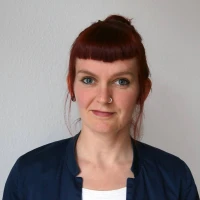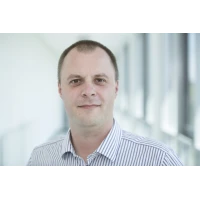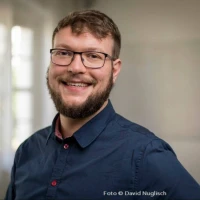Research Group
The research group Energy - Digital & Decentral analyses processes and impact of digitalization and decentralization in the energy sector, focussing on electricity production and transmission.
The phase-out of coal-fired power generation poses a variety of challenges at the technical, IT and social levels: Decarbonized energy generation is increasingly decentralized, especially in the electricity sector with the introduction of decentralized power generation and storage units (DER). Controlling these DER requires numerous technical adjustments: in the power plant fleet and energy generation, in grid operation and load planning, as well as through direct and indirect load management, digitalization is taking place in order to ensure security of supply and grid stability even in increasingly decarbonized and decentralized energy systems.
This digital transformation of the energy system is a socio-technical process; social conditions and technical developments interact closely with each other. The research group therefore works on an interdisciplinary basis and brings together technology, society and computer science in applied research. Based at Merseburg University of Applied Sciences, it focuses primarily on the Central German coalfield and the energy technology installed/planned for installation here in the context of the coal phase-out and the energy transition and ensures application-oriented research, including the transfer of research results.
- Research subjects
- People
- Links
- PDFArtistic Research Fellowship “Energy”pdf | 351 KB
Current events
- Energy: Digital & Decentral Conference 2025 - At the Intersection
- Prof. Dr. habil. Katja Müller takes over first Heisenberg professorship at universities in Saxony-Anhalt
Blog
Research Subjects
Shamim Ahmed investigates how distribution system operators (DSOs) can obtain probabilistic information on power generation and consumption in their grids without having access to the algorithms of Virtual Power Plants (VPPs). He is engaged in developing probabilistic forecasting models for power generation and consumption across various distributed energy resources (DERs). In other words, his research estimates the uncertainty associated with additional power injected into or drawn from the grids. His work explores multiple deep learning–based time-series models capable of capturing long-term temporal dependencies and addressing challenges related to irregular sampling intervals in real-world data. Both synthetic and real-world datasets are utilized for model training and validation. In addition to DER technical data, consumer load data, weather data, and calendar-based contextual features are incorporated to enhance the accuracy and robustness of the probabilistic forecasts. Several artificial neural network architectures are evaluated in the early stages of this research, using tools such as MATLAB/Simulink and Python-based machine learning frameworks. The performance of the probabilistic predictions is examined using evaluation metrics, including Mean Absolute Error (MAE), Root Mean Square Error (RMSE), and Continuous Ranked Probability Score (CRPS).
In his PhD project, Martin M?hring is researching how the German energy transition ("Energiewende") goes hand in hand with digitalisation and automation in the distribution grid. This is based on a socio-technical analysis of work activities and labour processes in system control in the course of implementing so-called ‘smart grid’ elements. Distribution grid operators no longer just distribute electricity, but also gather and process ever-increasing amounts of data and information in prediction models to ensure grid stability. This process is becoming increasingly automated, posing new challenges for employees. It also raises the question of what ethical concerns arise in the course of the digitalisation of the electricity grid, which is considered critical infrastructure. Overarching, the new role of data and data flows in grid management and their impact on the flow of electrons in the electricity grid is being studied.
Working title of PhD project: From the flow of electrons to the flow of data: A sociotechnical analysis of labor in transitioning electrical grids
Kolja Schumacher examines the changes in heterogeneous data from external sources in the context of data-based energy trading. His focus is on recognizing changes in the structure and meaning of this data and on adapting his own applications automatically or semi-automatically. The aim is to ensure continuous and error-free data processing despite these changes. In order to overcome these challenges, his research focuses on the question of which automated methods are most effective for adapting to data schema changes in external data sources. In particular, he is investigating whether large language models can improve recognition and adaptation to changing data. He compares and combines these approaches, for example in a web context, with traditional methods such as structural HTML comparisons, difference analysis and pattern recognition methods.
The decentralization and digitalization of electrical grids – or the dual transition - are not merely technical phenomena but instead are ongoing socio-technical processes. Chima Michael Anyadike-Danes’ research is firmly focused on the social elements of such transitions; how the technologies associated with the dual transition are understood and implemented. He examines how varied participants, be they members of the public, policymakers, or power companies, imaginaries influence the forms decentralization and digitalization take. In doing so Anyadike-Danes contributes to ongoing conversations in both anthropology and science and technology studies about energy sources, their nature, their associated infrastructures, and their politics.
In contrast to his colleagues in the Energy: Digital & Decentral project, whose research is focused on developments in Germany, Anyadike-Danes carries out his research in a SIDS (small island developing state). There he specifically explores how participants’ imaginings of the dual transition are informed by an awareness of their nation’s scale and this quality’s implications for everything from capital to procurement to expertise.
Felix Lussem investigates how relationships between different actors in the energy system are changing in the context of the coal phase-out and structural change policies in the Rhineland's mining region. His research project examines decentralization processes and recentralization dynamics of the energy transition from a socio-technical perspective, focusing on the role of digitalization. The gradual decommissioning of fossil fuel power plants and the parallel expansion of decentralized electricity production capacities require not only the restructuring of large energy suppliers, but also the introduction of new technologies for data collection, communication, and grid control. In this context, the project analyzes the motivations driving the transformation of the power grid, the rationalities reflected in the technical implementation, and the different interests shaping the collection and processing of data.
Katja Müller investigates whether and how VPPs challenge existing power generation and control systems and to what extent the decentralization of generation and the economic, community or ecological motivation behind it is reflected in the concrete design and implementation - the programming of the energy management system with its access authorizations. It is important here to understand the switch to digitally controlled renewable energies not only as a climate policy and technical necessity, but also as a far-reaching transformation and decision-making process in the sense of a double turnaround, in which new infrastructures set the framework for future energy technology controls and the resulting social control mechanisms. (EnergyDigital)
People
Funding
The project is funded by the European Union (JTF).













